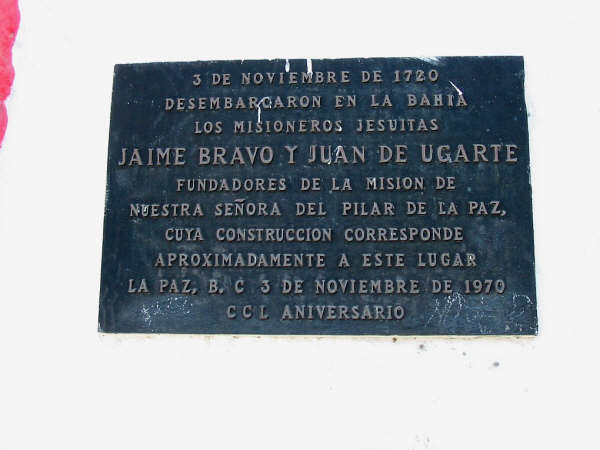Originally posted by Bajatripper
| Quote: | Originally posted by gnukid
There are many who study La Paz sociology, the social experiment, the history, El Puerto d'Ilusion. It's really quite a interesting case, it's among
the oldest North American cities, yet also among the youngest states on the West Coast of North America having been incorporated as a state in 1974,
there is a very long history yet the feeling of being young and having not yet arrived. La Paz has among the highest standards of living in Mexico,
however, it appears few actually do work.
What I know is 'Being Paceno Mexicano' is to be from somewhere else, largely mixed culturally, the feeling of being Paceno is to be naive, arrogant,
easily angered, quick to forget, proud, capable, self-reliant, optimistic, happy, complacent, macho, trickster.
Of course Nomads love a dog-pile, so pile on and insult me for even broaching this mysterious subject. Probably DK could espouse how awesome the
Franciscans were! Or what a cool guy William Walker was when he declared he was King of La Paz.
The point is for being a very Mexican city, La Paz is not very Mexican?@!#$! Or what I mean to say is Mexico is a very dynamic and diverse place, it
just doesn't like to admit it.
|
Your heart is in the right place, Kid (I think). You seem to buy into propaganda, though. La Paz is not an old city, as far as old cities go. San
Diego, California was up-and-running when La Paz was still nothing but a fish camp. At least I don't consider 1811 as old for a city. (If you want old
in North America, go to Saint Augustine, Florida.)
La Paz is definitely a "Mexican" city. I've spent quite a bit of time interviewing tourists (both foreign and national) who visited the city, and that
was a common sentiment expressed--that it still retains its Mexicaness. It may not have any colonial architecture (remember, it was founded about the
time of Mexican independence), but it has enough post-colonial stuff to make it interesting and the city has not been (and will likely never be)
overwhelmed by resort hotels. But it is first and foremost, a port city, and like any port city, it has attracted many foreigners as permanent
settlers. But that doesn't make it any less Mexican than Mazatlan, Manzanillo, or Veracruz (all of which have also attracted foreigners). In fact, La
Paz today feels very much like Mazatlan did in the 1960s, before the Zona Dorada was built. And I expect it to develop much as Mazatlan has, with our
"Zona Dorada" out at Tecolote Beach. But the town of La Paz should stay a Mexican town much as Olas Altas has.
And you are right when you say that being a Paceño Mexican is being from somewhere else, much like being an American is being from somewhere else.
I would question what you know about feeling what it is to be a Paceño since you are obviously not one. I think only a Paceño could tell us what that
feels like. I did, however, find your list of attributes interesting. From whose perspective is this seen? You have lived in enough other regions of
Mexico to make those assertions? More likely, these are the views of your wife, since few Americans would be able to discern the regional differences
among Mexicans.
I'd be interested in your sociology literature, and anything else you might have that studies La Paz and its inhabitants in a professional manner.
By the way; the Franciscans never operated out of the city, since their brief stay on the peninsula happened before the present city was founded.
Please don't consider this as "piling on," and I hope you haven't taken anything I said as an intended insult; my only interest is in accuracy.
|







